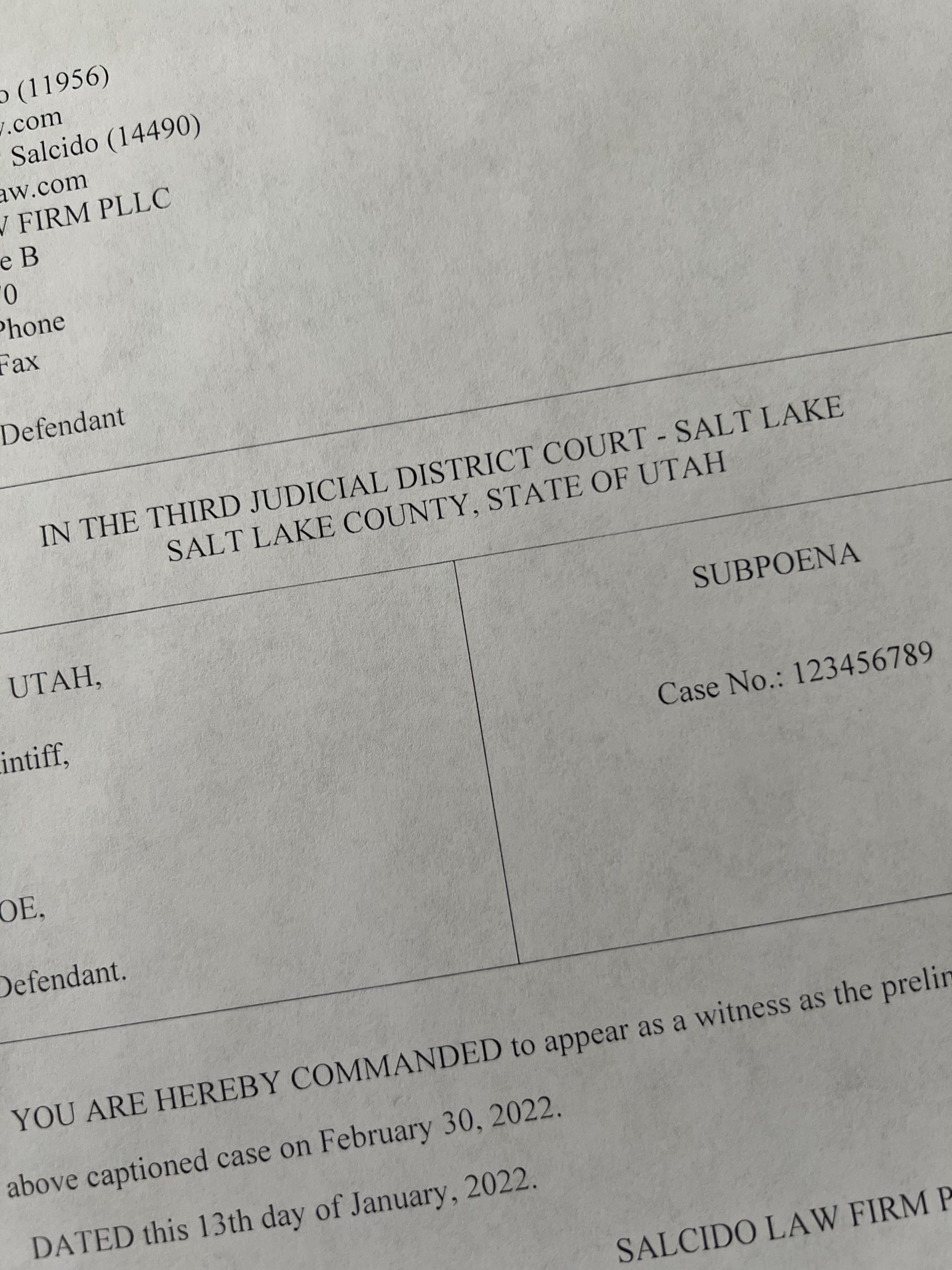What is a Preliminary Hearing?
One of the rights afforded an adult criminal defendant in the State of Utah is to have a preliminary hearing, which is a hearing in which the prosecutor is required to present evidence to the judge which establishes probable cause. It is in a limitation on the government’s power to criminally charge individuals unfairly or for improper reasons.
What Forms of Evidence Are Permitted?
The burden is very low for the State to establish probable cause and the court makes all inferences in a light most favorable to the State. So long as the prosecutor is able to present evidence showing that it is “more likely that not” that the crime was committed and that the defendant committed that crime, that is enough to bind the case over for trial.
Currently, Utah appellate decisions and the rules of evidence allow the prosecutor to present witness testimony in the form of sworn declarations or affidavits, making the State’s need to present witnesses in person, for all intents and purposes, void. See Utah Rules of Evidence 1102. Up until 2020, defendants could attempt to rebut these sworn declarations from witnesses by calling the witnesses themselves to testify at the preliminary hearing and questioning them on the stand, but in August of 2020 the Supreme Court of Utah limited defendants ability to compel alleged victims to testify at the preliminary hearing.
State v. Lopez
In State v. Lopez, 474 P.3d 949 (UT 2020), the Supreme Court of Utah addressed the issue of whether a criminal defendant in Utah has the “right” to subpoena witnesses to a preliminary hearing. Specifically, whether there exists that right to subpoena an alleged victim to testify at the preliminary hearing. After careful analysis the court ultimately found that yes a defendant can subpoena witnesses to testify at a preliminary hearing, but that right to compel witnesses to testify is limited by the reasonableness standard set forth in Utah Rules of Criminal Procedure 14. Based on this rule the court further held that “…a subpoena compelling alleged victims to testify is per se ‘unreasonable’ when it seeks testimony that is immaterial to the probable-cause determination, would obviate the legal sufficiency of hearsay evidence, and would unnecessarily intrude on the rights of victims.” Lopez, 474 P.3d at 965.
If a court determines that an alleged victim’s sworn declaration satisfies the probable cause standard, then the burden shifts to the defendant to show “that additional, live testimony from the victim is necessary to present evidence on a specific point material to the probable-cause determination, and that is reasonably likely to defeat the State’s prima facie showing of probable cause.” Id. This is a very high standard for a defendant to meet simply because the probable cause standard is so easy to satisfy. To put another way, the defendant would have to show that the sworn affidavit is a fabrication and that the alleged victim if called as a witness would testify that he/she never said those things, never read the sworn declaration, and/or never knowingly signed that sworn declaration.
State v. Lopez, therefore, ultimately made it impossible for defendants to call alleged victims as witnesses at preliminary hearing.





